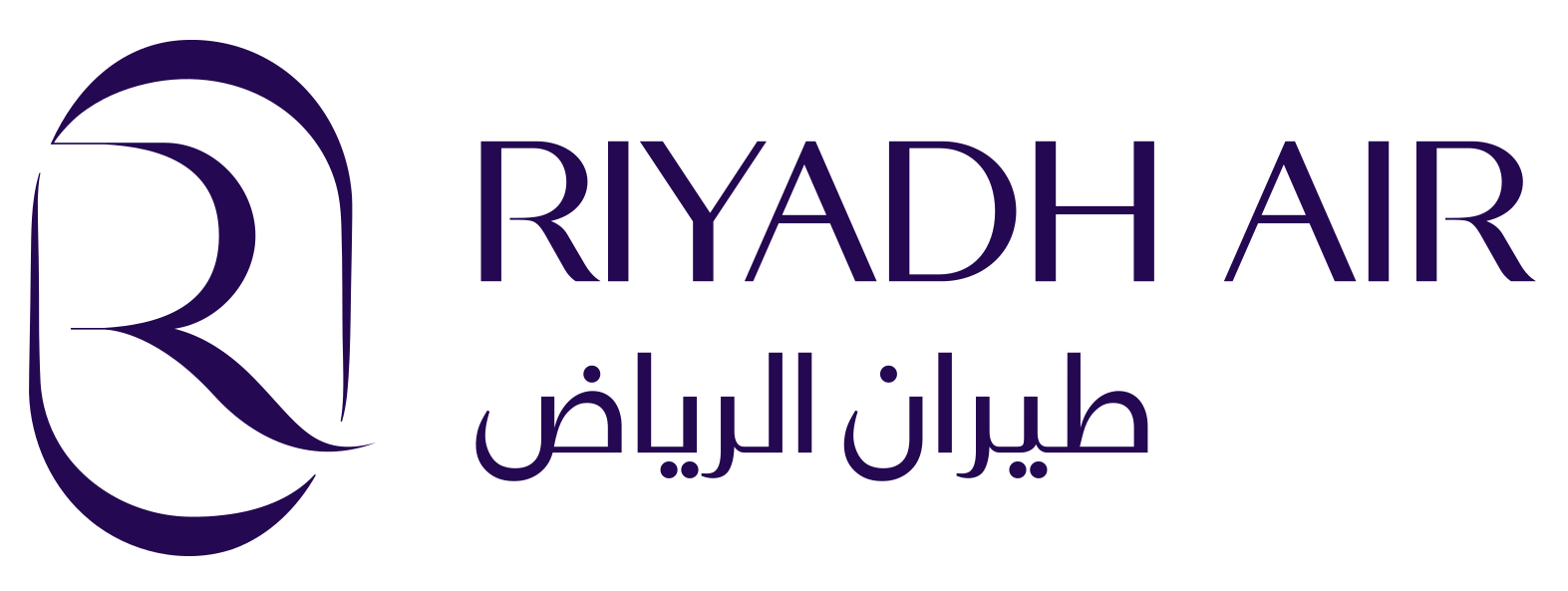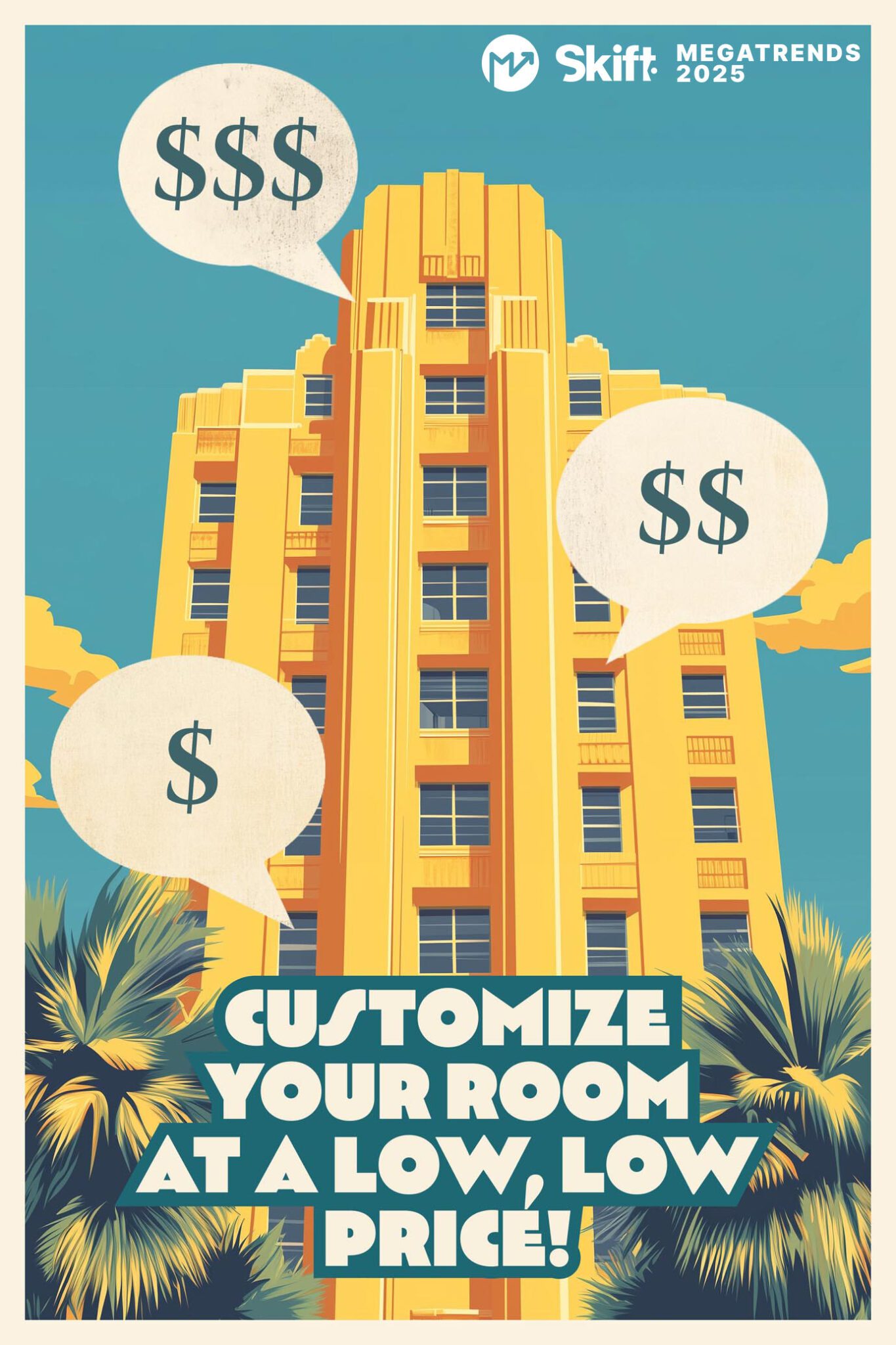This sponsored content was created in collaboration with a Skift partner.
Q&A: Airlines Double Down on Sustainability and Tech

Riyadh Air + Skift
The next decade will be a defining moment for the airline industry as technology and sustainability initiatives reshape the future of flight. The industry is increasingly adopting digitalization, with 90 percent of aviation industry leaders prioritizing technology to improve the customer experience.
Sustainability is also an increasingly key focus as travelers become more environmentally conscious and governments tighten regulations. According to a Bain & Company report, airlines could cut up to 70 percent of their CO₂ emissions through fuel efficiency, operational improvements, and adopting sustainable aviation fuels, which could reduce emissions by an additional 23 percent. However, this shift towards a fully digital and sustainable operation requires a new skill set — quite different from managing legacy systems.
Riyadh Air is stepping into this landscape with an advantage as it builds its operations from the ground up, focusing on technology and sustainable practices. SkiftX spoke with Tony Douglas, CEO of Riyadh Air, to understand how these trends are shaping the future of aviation.
SkiftX: How have the expectations among airline customers changed in recent years?

Tony Douglas: Today’s passengers are far more technology-oriented and demanding than ever before. It’s not just about getting from point A to point B — customers expect a seamless experience from booking to landing, with technology making their journey frictionless and easy.
Saudi Arabia has a young, educated, and dynamic population, with 70 percent of people under the age of 30 spending up to seven hours per day on average browsing on mobile phones. They’re tech-savvy and want the best possible service, which is why we’re launching the world’s first digital native airline. Passengers expect real-time updates and self-service options, all customized and personal to them. If an airline can’t provide this, they’ll look elsewhere. This is why we’re leading this transformation at Riyadh Air.
How are airlines adapting their strategies in response to these shifting customer expectations?
Airlines are embracing digital transformation on a wide scale. They’re using data to understand the customer at a deeper level and anticipate their requirements and preferences. At Riyadh Air, we’re starting with a clean slate and are not linked to legacy operations, which means we can deliver this strategy better than any other airline. Everything we do is designed to be smooth and intuitive, from booking to check-in to customer service. The customer doesn’t have to chase anything because we’ll take care of it for them. It’s about making everything simple, seamless, and fast.
What key digital innovations will redefine the airline industry as we look ahead into 2025 and beyond?
There’s no question about the fact that digital technology is redefining airlines. For example, the information and insights we can gain from artificial intelligence will feed into everything from personalized experiences to real-time flight adjustments. The future of air travel is about removing the stress of travel and replacing it with options to enjoy the journey.
Passengers want instant, accurate information when they’re at an airport — the right flight, the right gate, and the right time. Technology allows us to put this information directly in their hands via smartphones. This empowers them to make the most of their time, whether enjoying a meal or coffee, saying goodbye to loved ones, or simply relaxing. The airline of the future will be smart, sustainable, and at the cutting edge of technology.
What factors do you anticipate will impact how airlines operate in terms of sustainability?
Regulation and innovation are the two major factors that will dictate how airlines respond to sustainability. The government is pushing airlines to go green, and rightly so. However, we know that the real shift will come from technology. More efficient aircraft, alternative fuel solutions, and perhaps even electric planes will completely change the game in the future. The aviation industry must get serious about sustainability, and if an airline is not already on that journey, it will get left behind.
At Riyadh Air, we’ve built sustainability into everything we do. We’re committed to it as a fundamental part of our DNA. From the beginning of the project, we signed up for the UN Global Compact and developed a sustainability master plan that addressed all elements of our operations.
What challenges do airlines face in transitioning toward more sustainable practices, and how can they overcome them?
The biggest challenge is scaling new technology while maintaining cost-effectiveness. For example, sustainable aviation fuels still have limited availability, and having signed a recent Memorandum of Understanding (MoU) with Aramco, we are working with partners to speed up its introduction and look at alternatives.
The truth is that none of us in the airline industry have a choice. We must make it happen through investment in technology and infrastructure. At Riyadh Air, our mindset is that sustainability isn’t just a goal — it’s a competitive advantage. We’re committed to leading the industry in sustainable innovation with advanced aircraft like our 787 Dreamliners and A321neos, which are designed to reduce emissions, and partnerships to expand access to sustainable aviation fuels.
As a newly established airline, how does starting afresh without legacy systems provide Riyadh Air with competitive advantages?
No legacy systems mean we can create the airline of tomorrow, today. We’re not burdened by outdated technology or inefficient processes. We’re free to build from scratch and integrate the best technology, systems, and customer experience right from the start. Working with a blank slate enables us to operate faster, smarter, and more efficiently. And when you’re not tied down by legacy, you can adapt and innovate much faster than the competition. We’re going to use this freedom to lead our industry’s transformation.
How does Riyadh Air plan to lead in the commercial aviation space?
We’re not just another startup airline — we want to redefine what it means to fly. Our vision is to innovate, provide the best passenger experience, and set new standards in everything we do. We’ve got a relentless focus on technology and sustainability. From AI-powered personalized experiences to reducing our carbon footprint, we’re leading the charge on the future of travel.
We’re building an airline that people will want to fly, not just because it’s convenient, but because it’s a whole new way to experience air travel. We don’t want to wait for the future to happen — we want to be part of driving it.
For more information about Riyadh Air, visit riyadhair.com
This content was created collaboratively by Riyadh Air and Skift’s branded content studio, SkiftX.
More Trends
Stay Ahead of the Megatrends With The Daily
Skift’s morning newsletter delivers breaking news, features, and exclusive analysis from around the world straight to your inbox, five days a week.



















